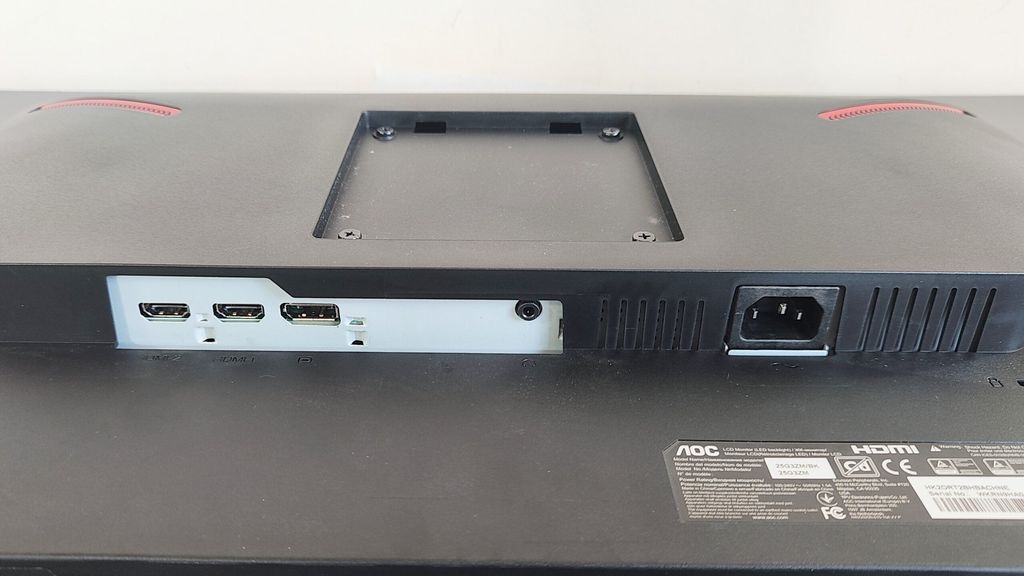In recent years, Alexandria Ocasio-Cortez, commonly known as AOC, has emerged as a prominent figure in American politics. With her bold policy proposals, unique communication style, and growing popularity, AOC has sparked both admiration and controversy. This article explores the rise of AOC, her policy proposals, communication style, critics and controversies, as well as her overall popularity and influence. Through a careful analysis of these aspects, we aim to determine whether AOC is a good brand in American politics.
Key Takeaways
- AOC’s rise to prominence is attributed to her background, early career, and political activism.
- Her policy proposals, including the Green New Deal and Medicare for All, have garnered attention and support from progressive voters.
- AOC’s communication style, characterized by her active social media presence and authenticity, has helped her connect with a younger audience.
- Despite her popularity, AOC has faced criticism from conservatives, internal Democratic party members, and the media.
- AOC’s influence extends beyond her own campaign, as she has received endorsements and support from fellow politicians.
The Rise of AOC

AOC’s Background and Early Career
Alexandria Ocasio-Cortez, commonly known as AOC, is a prominent figure in American politics. Born and raised in the Bronx, New York, she comes from a working-class background, which has shaped her perspective and policy priorities. AOC attended Boston University, where she studied economics and international relations. After graduating, she worked as an educational director for the National Hispanic Institute, focusing on empowering young people from marginalized communities.
AOC’s early career also includes her involvement in grassroots organizing and activism. She played a key role in the Bernie Sanders presidential campaign in 2016, working as a volunteer organizer. This experience fueled her passion for progressive policies and inspired her to run for office herself.
In 2018, AOC made history by defeating incumbent Joe Crowley in the Democratic primary for New York’s 14th congressional district. At the age of 29, she became the youngest woman ever elected to Congress. This victory propelled her into the national spotlight and solidified her position as a rising star within the Democratic Party.
AOC’s Political Activism
AOC’s political activism has been a defining aspect of her career. She has been a vocal advocate for progressive policies and has used her platform to push for change. One of her key initiatives is the Green New Deal, a comprehensive plan to address climate change and create jobs. This proposal has sparked both support and criticism, with some praising its ambition and others questioning its feasibility. AOC has also been a strong proponent of Medicare for All, arguing that healthcare is a human right. She has highlighted the need to address income inequality and has called for policies that promote economic justice. AOC’s political activism has made her a prominent figure within the Democratic Party and has helped shape the party’s agenda.
AOC’s Impact on the Democratic Party
AOC’s rise to prominence has had a significant impact on the Democratic Party. Her unapologetically progressive stance and ability to connect with younger voters have pushed the party to embrace more progressive policies. AOC’s grassroots campaign and social media presence have also inspired other progressive candidates to run for office, further shifting the party’s direction. While some Democrats have criticized her for being too far left, AOC’s popularity and influence cannot be denied. She has become a prominent voice within the party, advocating for bold and transformative policies that resonate with a growing segment of the Democratic base.
AOC’s Policy Proposals

Green New Deal: A Bold Vision for Climate Change
The Green New Deal is one of AOC’s most well-known policy proposals. It aims to address the urgent issue of climate change by implementing a comprehensive plan that combines environmental sustainability with economic growth. The Green New Deal calls for a transition to 100% clean and renewable energy, the creation of millions of green jobs, and investments in sustainable infrastructure. It also emphasizes social and economic justice, aiming to ensure that marginalized communities are not left behind in the transition to a green economy.
To achieve these goals, the Green New Deal proposes a range of measures, including increasing energy efficiency, expanding public transportation, and investing in renewable energy sources. It also calls for the protection and restoration of natural ecosystems, such as forests and wetlands, which play a crucial role in mitigating climate change.
The Green New Deal has sparked both support and criticism. Supporters argue that it is a necessary and ambitious response to the climate crisis, while critics raise concerns about its feasibility and potential economic impact. Despite the controversy, the Green New Deal has succeeded in bringing the issue of climate change to the forefront of political discourse and has inspired a broader conversation about the need for bold action.
Medicare for All: A Universal Healthcare Solution
Medicare for All is one of AOC’s key policy proposals, aiming to provide universal healthcare coverage for all Americans. This proposal advocates for a single-payer healthcare system, where the government would be responsible for financing and administering healthcare services. The goal is to ensure that every individual has access to quality healthcare, regardless of their income or employment status.
Supporters of Medicare for All argue that it would eliminate the complexities and inefficiencies of the current healthcare system, reduce administrative costs, and ensure that healthcare is a right rather than a privilege. They believe that a single-payer system would lead to better health outcomes and lower healthcare costs in the long run.
However, critics of Medicare for All raise concerns about the potential increase in taxes and the impact on the private healthcare industry. They argue that such a system could lead to longer wait times for medical services and limit individuals’ choice of doctors and treatment options.
It is important to note that the implementation of Medicare for All would require significant changes to the current healthcare system and would likely face political and logistical challenges. The debate around this policy proposal continues, with proponents and opponents offering different perspectives on the feasibility and potential impact of a universal healthcare solution.
Income Inequality: Addressing the Wealth Gap
Income inequality is a pressing issue in our society, with a significant wealth gap between the rich and the poor. AOC recognizes the importance of addressing this issue and has proposed several policy solutions to tackle income inequality.
One of AOC’s key proposals is to increase taxes on the wealthy and large corporations. By implementing a more progressive tax system, AOC aims to redistribute wealth and ensure that the burden of taxation is more evenly distributed. This approach is based on the belief that those who have benefited the most from our economic system should contribute more to support those who are struggling.
In addition to tax reform, AOC also advocates for increasing the minimum wage. She believes that raising the minimum wage will help lift millions of Americans out of poverty and reduce income inequality. By providing workers with a fair and livable wage, AOC aims to create a more equitable society where everyone has the opportunity to thrive.
To address the wealth gap, AOC also supports policies that promote affordable housing and access to education. She believes that everyone should have access to safe and affordable housing, as well as quality education, regardless of their socioeconomic background. By investing in these areas, AOC aims to level the playing field and provide equal opportunities for all.
It is important to note that AOC’s proposals have sparked debates and discussions among policymakers and economists. While some argue that her policies may have unintended consequences, others see them as necessary steps towards creating a more just and equitable society.
In conclusion, AOC recognizes the significance of income inequality and has put forth policy proposals aimed at addressing the wealth gap. Through tax reform, increasing the minimum wage, and promoting affordable housing and education, AOC seeks to create a more equitable society where everyone has the opportunity to succeed.
AOC’s Communication Style

Social Media Presence: Engaging with the Public
AOC’s social media presence has played a significant role in engaging with the public and amplifying her message. With a large following on platforms like Twitter and Instagram, she has been able to directly communicate with her constituents and supporters, sharing updates, policy proposals, and personal insights. AOC’s use of social media has allowed her to connect with a younger demographic and mobilize grassroots movements. For example, her live-streamed sessions on Instagram, where she discusses policy issues and answers questions from viewers, have become popular and effective ways of engaging with her audience. Additionally, AOC’s social media presence has also attracted criticism and controversy, with conservative backlash and media scrutiny. However, it has undeniably been a powerful tool for AOC to communicate her message and connect with the public.
Authenticity and Relatability: Connecting with Voters
Authenticity and relatability are key factors in AOC’s success in connecting with voters. AOC’s background as a working-class Latina from the Bronx resonates with many Americans who feel marginalized by the political establishment. Her ability to speak candidly and authentically about her own experiences and struggles has made her relatable to a wide range of people. AOC’s use of social media, particularly Twitter, has also played a significant role in her ability to connect with voters. She uses the platform to share personal stories, engage in conversations, and provide updates on her work. This direct and unfiltered communication style has helped her build a strong and loyal following. AOC’s authenticity and relatability have allowed her to break through the noise of traditional politics and connect with voters on a deeper level.
Controversial Statements: Impact and Perception
AOC’s outspoken nature and willingness to challenge the status quo have led to several controversial statements throughout her career. These statements have garnered both praise and criticism, shaping the public’s perception of her. One notable example is her comment on the Israeli-Palestinian conflict, where she stated, ‘I think what we’re seeing here is an occupation of Palestine.’ This statement sparked a heated debate and drew attention to the ongoing conflict. While some praised her for speaking out against injustice, others criticized her for oversimplifying a complex issue. It is important to note that AOC’s controversial statements often reflect her progressive values and commitment to social justice. However, they also highlight the challenges of navigating sensitive topics in the political arena.
AOC’s Critics and Controversies

Conservative Backlash: AOC as a Target
Since her election to Congress, Alexandria Ocasio-Cortez (AOC) has faced significant conservative backlash. Critics argue that her progressive policies and outspoken nature threaten traditional conservative values and the status quo. AOC’s calls for social and economic justice, such as the Green New Deal and Medicare for All, have been met with strong opposition from conservative politicians and media outlets. They accuse her of promoting socialism and undermining American capitalism. Additionally, AOC’s use of social media to connect with her constituents and amplify her message has drawn criticism from conservatives who view her as a disruptive force in politics. Despite the backlash, AOC remains a prominent figure in the Democratic Party and continues to advocate for progressive change.
Internal Democratic Party Criticism
Internal Democratic Party criticism of AOC has been a topic of discussion since her rise to prominence. Some members of the party have expressed concerns about her progressive policy proposals and her outspoken nature. They argue that her positions are too far to the left and could alienate more moderate voters. Additionally, there have been reports of tension between AOC and more established members of the party, with some viewing her as a disruptive force. However, it is important to note that AOC also has a strong base of support within the Democratic Party, particularly among younger and more progressive members. Despite the criticism, AOC has been successful in pushing the party to the left and bringing attention to issues such as income inequality and climate change.
Media Coverage: Bias or Fair Assessment?
Media coverage of AOC has been a subject of debate, with some questioning whether it is biased or a fair assessment of her actions and policies. Critics argue that conservative media outlets often portray AOC in a negative light, focusing on controversial statements and labeling her as a socialist. On the other hand, supporters argue that mainstream media tends to downplay AOC’s achievements and policy proposals, instead focusing on her social media presence and personal life. It is important for readers to critically analyze media coverage and seek multiple sources to form an informed opinion.
AOC’s Popularity and Influence

Youth Appeal: Inspiring a New Generation
AOC’s youth appeal has been a key factor in her rise to prominence and influence. As a millennial herself, she has been able to connect with young voters in a way that few other politicians have. Her use of social media, particularly platforms like Twitter and Instagram, has allowed her to engage directly with her followers and share her message in a relatable and accessible manner. AOC’s ability to speak to the concerns and aspirations of young people has inspired a new generation of activists and political leaders.
AOC’s popularity among young voters is evident in the support she has received from organizations like the Sunrise Movement and Justice Democrats, which are focused on promoting progressive policies and candidates. Her advocacy for issues like climate change, healthcare, and income inequality resonates with many young people who see her as a champion for their concerns. AOC’s ability to mobilize and energize young voters has had a significant impact on the political landscape, pushing the Democratic Party to embrace more progressive policies and ideas.
In addition to her policy positions, AOC’s authenticity and relatability have also contributed to her appeal among young voters. She is seen as someone who speaks her mind and is not afraid to challenge the status quo. Her willingness to take on powerful interests and speak up for marginalized communities has earned her a reputation as a fearless advocate for change. AOC’s ability to connect with young voters on a personal level has made her a powerful and influential figure in American politics.
Progressive Movement: AOC’s Role
AOC has played a significant role in the progressive movement, capturing the attention and support of many young activists. Her bold policy proposals and unapologetic advocacy for social and economic justice have resonated with a generation that is demanding bold action on issues like climate change, healthcare, and income inequality.
One of the key aspects of AOC’s role in the progressive movement is her ability to inspire and mobilize young people. Through her authentic and relatable communication style, she has been able to connect with voters on a personal level, making politics more accessible and engaging for a new generation.
AOC’s influence extends beyond her own campaign and district. She has become a prominent voice within the Democratic Party, pushing for more progressive policies and challenging the status quo. Her endorsements and support from fellow politicians have further solidified her position as a leader within the progressive movement.
In summary, AOC’s role in the progressive movement is characterized by her ability to inspire, mobilize, and advocate for bold and progressive policies. Her impact on the Democratic Party and her ability to connect with young voters have made her a powerful force in shaping the future of progressive politics.
Endorsements and Support from Fellow Politicians
AOC has garnered significant endorsements and support from fellow politicians, particularly within the progressive wing of the Democratic Party. Her bold policy proposals and unapologetic advocacy for social and economic justice have resonated with many progressive leaders. Senator Bernie Sanders, a prominent figure in the progressive movement, has expressed his support for AOC and her policy agenda. Additionally, AOC has received endorsements from other progressive politicians such as Senator Elizabeth Warren and Representative Ilhan Omar. These endorsements highlight the influence and impact that AOC has had within the Democratic Party and the broader progressive movement.
Conclusion
In conclusion, AOC is a prominent and controversial brand in American politics. While some view AOC as a progressive and inspiring figure, others criticize her for being too radical and inexperienced. Regardless of one’s opinion, it is undeniable that AOC has made a significant impact on the political landscape and has become a household name. Whether AOC is a good brand or not ultimately depends on one’s political beliefs and values.
Frequently Asked Questions
Is AOC a member of the Democratic Party?
Yes, AOC is a member of the Democratic Party.
What is AOC’s stance on climate change?
AOC is a strong advocate for addressing climate change and has proposed the Green New Deal as a comprehensive solution.
Does AOC support universal healthcare?
Yes, AOC supports Medicare for All as a way to provide universal healthcare coverage.
What is AOC’s position on income inequality?
AOC believes in addressing income inequality and has proposed policies to reduce the wealth gap.
How does AOC engage with the public on social media?
AOC has a strong social media presence and actively engages with the public through platforms like Twitter and Instagram.
Has AOC faced criticism from within the Democratic Party?
Yes, AOC has faced criticism from some members of the Democratic Party for her progressive policies and outspoken nature.




